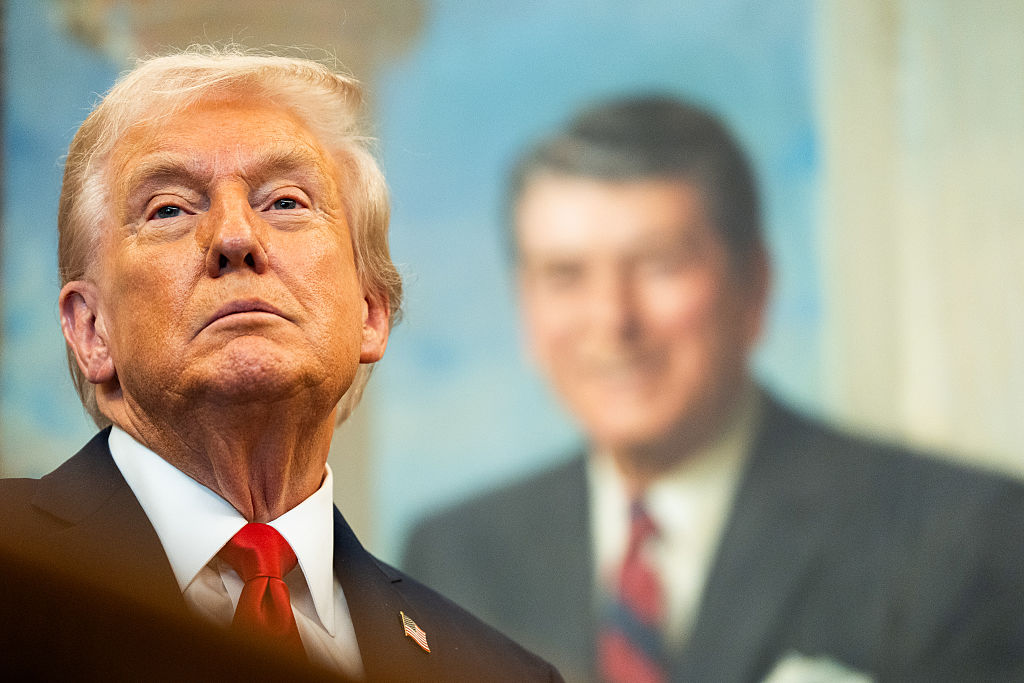 Source: The Washington Post / Getty
Source: The Washington Post / Getty
President Donald Trump appears to have finally shown a rare moment of restraint in his agenda to use the U.S. military as his personal police force to weaponize against Democrat-run cities he has just up and decided he doesn’t like for one reason or another.
Don’t get too excited, though. He’s not showing that restraint in predominantly Black cities and districts like Chicago or D.C., or cities like Portland, where the governor isn’t afraid to publicly blast the Constitution-defying authoritarian who currently occupies the Oval Office. But he has reportedly decided to stand down on his threat to deploy the military into San Francisco, and it appears he’s doing so because the mayor and a bunch of rich people are being really nice to him.
According to the Associated Press, up until earlier this week, Trump was all geared up to send military personnel into the city this Saturday, but then he got a call from San Francisco Mayor Daniel Lurie and also had discussions with some of the Bay Area’s most prominent tech leaders, and, voila, the most senseless president in recent history finally starts acting like he has at least a modicum of sense — which is still most certainly giving him too much credit.
From AP:
“I got a great call from some incredible people, some friends of mine, very successful people,” Trump told reporters Thursday at the White House, specifically referencing Jensen Huang, the CEO of Nvidia, one of the world’s most valuable tech companies, and Marc Benioff, CEO of software company Salesforce.
He said they told him San Francisco was working hard to reduce crime. “So we are holding off that surge, everybody. And we’re going to let them see if they can do it,” Trump said. He said he could change his mind if it “doesn’t work out.”
Of course, much like in every other Democratic city where Trump has lied about rising crime to justify his weaponization of the military, crime in San Francisco was already trending downward before Trump made plans to send troops there. So, basically, a bunch of billionaires had to call Trump and speak billionaire-ese so the president could finally get it through his thick, spray-tanned skull that what he was planning to do was unnecessary.
Trump also said he had a pleasant conversation with Lurie.
“I told the mayor, I love what you’re doing, I respect it, and I respect the people that are doing it,” Trump said.
One can imagine Lurie was on the other line, holding back every curse word in the dictionary, because imagine having to play nice with a president who has no legal authority over your city but is patting you on the head for doing a good job as if you needed or ever solicited his approval.
In fact, according to Politico, Trump even went as far as to claim he’s backing off from San Francisco because Lurie “asked very nicely” that he back down.
Apparently, the mayor is being credited for avoiding a possible catastrophe by walking on eggshells so as not to upset the 79-year-old toddler-in-chief.
From Politico:
It was also a monumentally validating moment for Lurie, a first-term mayor and moderate Democrat whose painstaking effort to avoid provoking Trump ran in contrast to a field of high-profile Democrats who have assailed the president. Unlike the Gavin Newsoms or JB Pritzkers or Brandon Johnsons of the party, Lurie has taken a less confrontational route.
An heir to the billion-dollar Levi Strauss fortune, he has fewer political imperatives to brawl with Trump — with the progressive wing of his party out of power in San Francisco and any prospects of running for higher office, which he has downplayed, further out on the horizon. But in Trump’s reversal, he delivered a rare victory for Democrats in the minority in Washington and besieged by the GOP in cities across the map.
In San Francisco on Thursday — where residents had braced for what many saw as an impending act of federal aggression — what was left from his armistice with Trump was a sense of temporary relief.
Lurie’s allies cast Trump’s standing down as an affirmation that his more measured approach — focusing on public safety statistics and avoiding partisan saber rattling — may have saved San Francisco from a chaotic and dangerous moment. They said it also underscored Lurie’s ability to leverage relationships with prominent CEOs who have direct access to Trump.
Yeah — getting it done is just not the flex it should be when so-called leaders are getting it done by being this afraid of the president. If keeping the residents in your city safe means kowtowing to Trump so he won’t make them less safe, there is a larger problem that needs to be addressed because it ain’t going away.
SEE ALSO:
Here’s All Of The US Cities Protesting ICE Raids As Trump’s Troop Deployment Continues
Trump Ramps Up Threats To Send Troops To Chicago After Violent Labor Day Weekend
